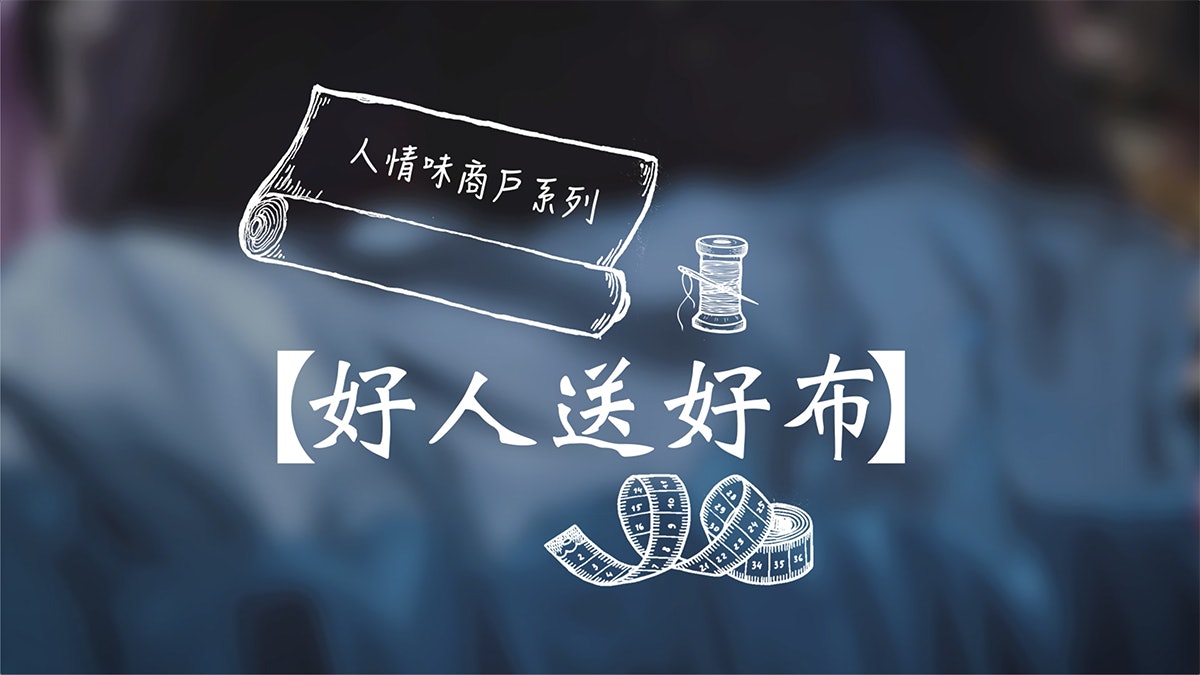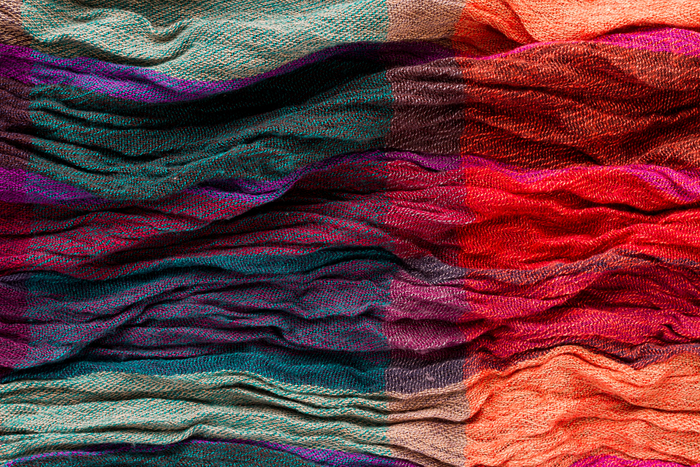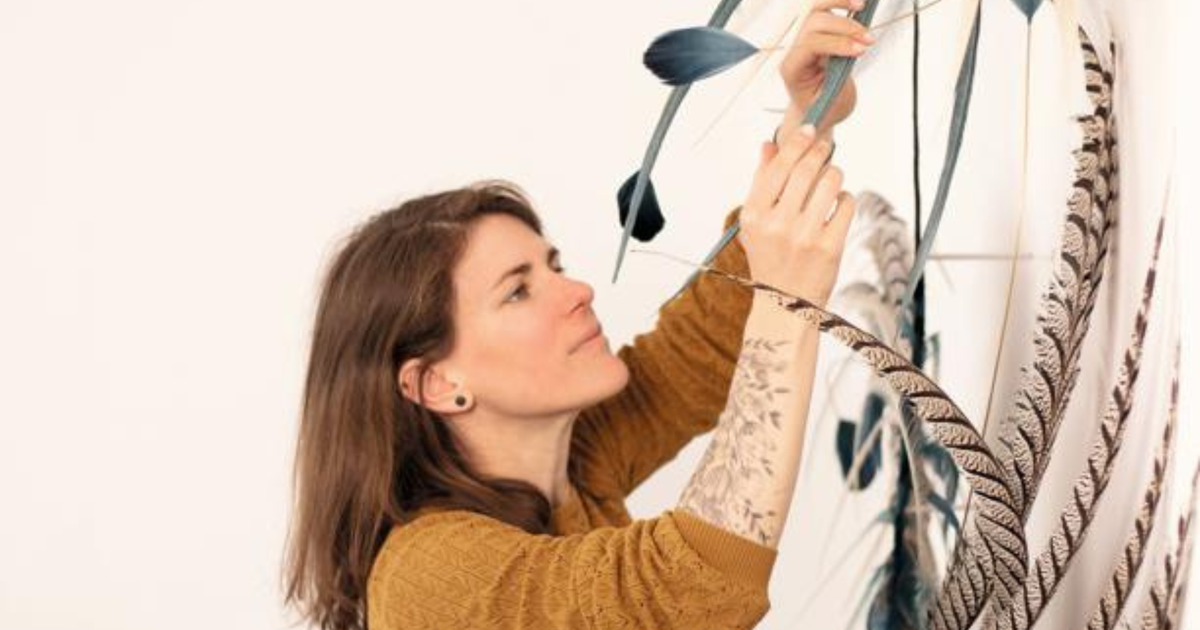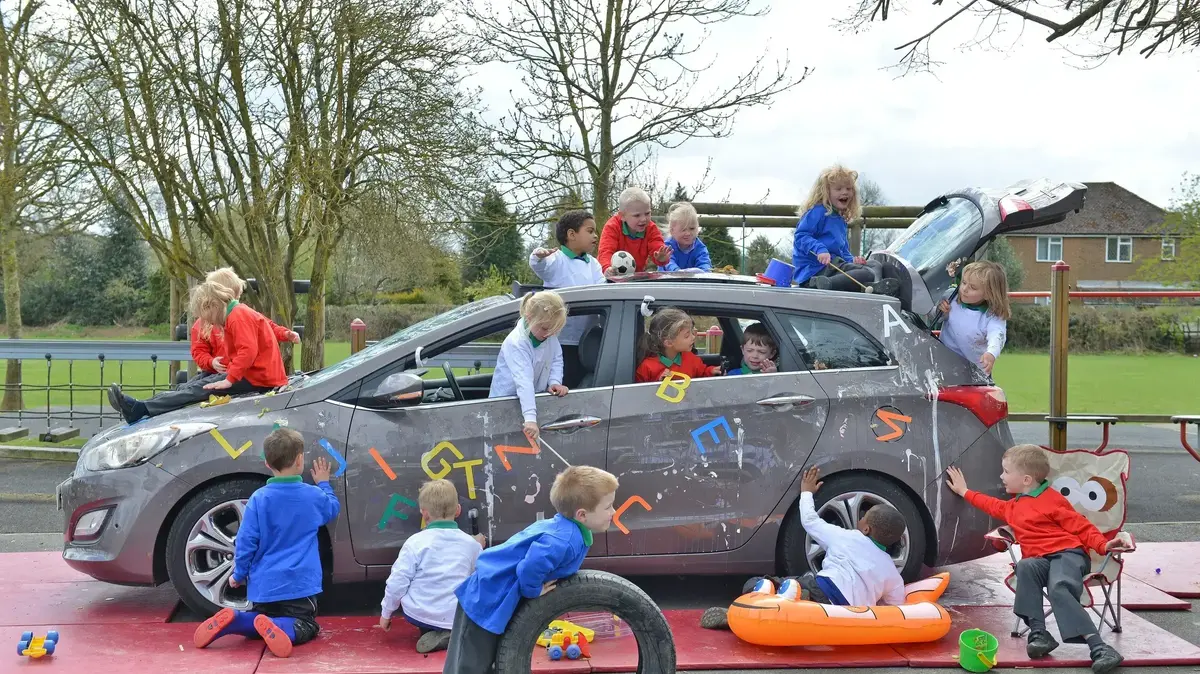Sham Shui Po used to be full of cloth shops. In recent years, with the decline of the industry, cloth shops are rare to buy.
"Hua Fa Tau" opened in 1988 and has a history of 34 years.
The reason why the owner Liu Tianhuan (Tai Chen) persisted in the operation was not only because of his wish to inherit his father's business, but also because of the friendship he had "woven" with the neighbors in Sham Shui Po.
In recent years, Buxing has become more involved in the community and cooperated with the Self-improvement Association, a social welfare organization, to donate fabrics to put new clothes on the wheelchairs of the disabled.
Photography: Gong Jiasheng
Taichen followed his parents in the shop since childhood and spent his entire childhood in Sham Shui Po.
Whenever he recalls his childhood, in addition to the colorful fabrics, Tyson also reminisces about the human feelings in the district.
"We have a good relationship with the nearby shops and neighbors. We often help each other, such as guarding the goods or the shop, and we have accumulated a unique neighborhood feeling."
Taison grew up in Sham Shui Po since he was a child, and developed a deep affection for people and things in the area.
A small piece of fabric makes a big difference
The camaraderie born and raised in this country has transformed into the motivation for Tyson to participate in the community.
When he took over the cloth business from his father, he was determined to make good use of the shop's fabrics and the ability of his team to help the needy communities in the region.
Because fabric is a raw material and requires complicated processes to turn it into a "useful" product, the cloth shop has repeatedly expressed its intention to donate fabric to the social welfare organization, but it has also been declined.
It was not until a few years ago that I met the Self-improvement Association and learned that the "Community Wheelchair Parent Team Project" carried out by the association needed fabrics, and Taichen agreed to support and began to cooperate.
Tyson did not expect a small piece of cloth to achieve great significance: "Wheelchairs are friends of the disabled, but they are usually dark. We plan to use our fabrics to beautify wheelchairs and make different accessories, such as rain shields, side backs, etc. Bags, etc., are both beautiful and practical.” Tyson said that many disabled people are very happy after adding colors and accessories to their wheelchairs, because these “value-added services” are difficult to buy in the market, and they are not suitable for wheelchair users who have a certain burden of medical expenses. In terms of more than a hundred pounds.
"I don't know much about people with disabilities, but the more I got in touch with them in the program, the more I got to know them. Now they sometimes come in to sing verses or take a break after going through the program, and we all become good friends."
In the face of the impact of the epidemic and the decline of the industry, Tyson believes that the operation of small stores is not easy, and it needs mutual help from other stores and neighbors to tide over the difficulties together.
In addition, he believes that the power of young people can also bring light to the fabric industry: "I hope more young people will join and bring new direction and positive energy to the industry."
Fabrics can beautify wheelchairs, and can also be made into practical wheelchair accessories to meet the needs of wheelchair users.
Connecting merchants and communities to weave a mutual aid network
There are all kinds of small shops in the community. In addition to taking care of the needs of the residents in terms of clothing, food, housing, and transportation, some of them also play the spirit of "business support" and provide different kinds of help to the residents.
The Community Investment and Inclusive Fund held the "Watching·Business Support" Humane Merchant Recognition Scheme earlier to commend local merchants for their contributions to building a community mutual aid network. There are 80 award-winning merchants in the first phase.
Fund committee member Zhang Yilin has been engaged in the textile and garment industry for many years, which is inseparably related to the word "weaving".
He shared: "In addition to participating in the work of the Community Investment and Inclusion Fund, I actively connect various sectors to build social capital, and I also often encourage companies and merchants in the industry to work together to 'weave' a mutual aid network in the community, such as through cross-sector cooperation. New services or products can improve the community, encourage young people to communicate with seniors, etc., and bring people closer.” He thanked the local merchants for their long-term cooperation with the fund planning team, and hoped that more merchants would be willing to go a step further in the future. Working together to build a humane community.
Mr. Zhang Yilin, a member of the Community Investment and Sharing Fund, encouraged companies and merchants to join hands to weave a mutual aid network in the community.
(Information provided by customer)









